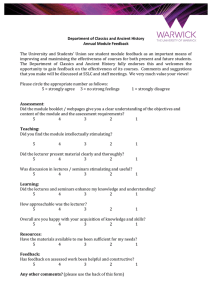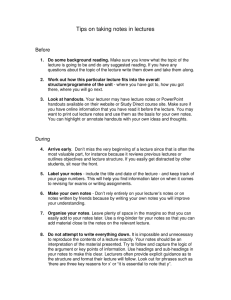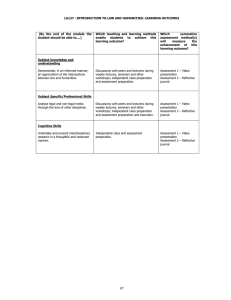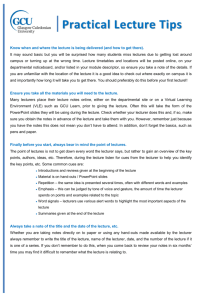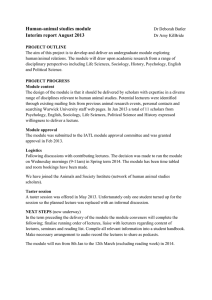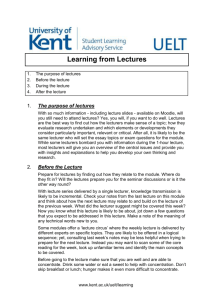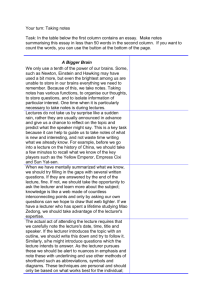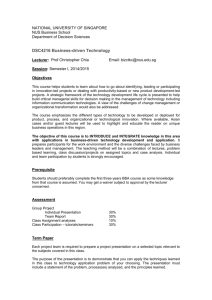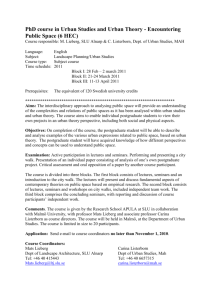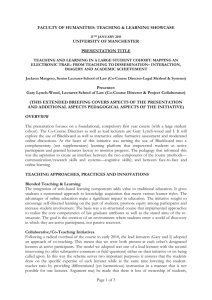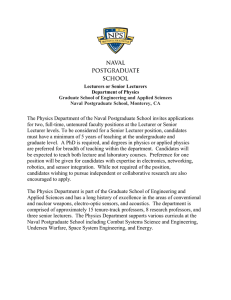Study strategies for international postgraduate students (by coursework)
advertisement
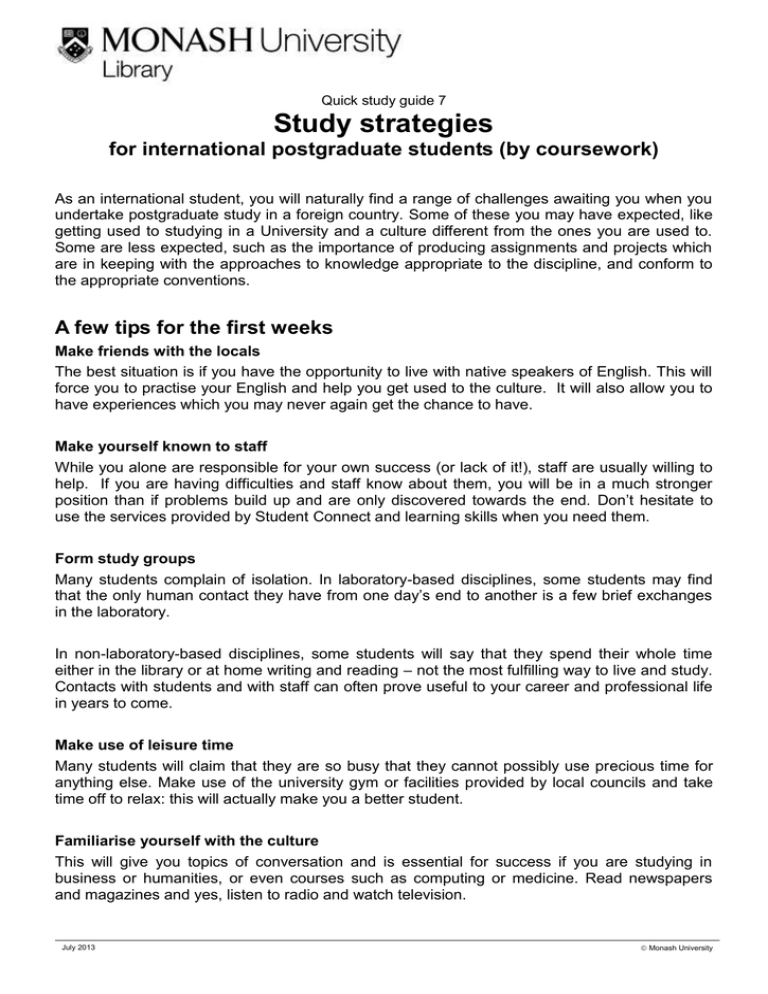
Quick study guide 7 Study strategies for international postgraduate students (by coursework) As an international student, you will naturally find a range of challenges awaiting you when you undertake postgraduate study in a foreign country. Some of these you may have expected, like getting used to studying in a University and a culture different from the ones you are used to. Some are less expected, such as the importance of producing assignments and projects which are in keeping with the approaches to knowledge appropriate to the discipline, and conform to the appropriate conventions. A few tips for the first weeks Make friends with the locals The best situation is if you have the opportunity to live with native speakers of English. This will force you to practise your English and help you get used to the culture. It will also allow you to have experiences which you may never again get the chance to have. Make yourself known to staff While you alone are responsible for your own success (or lack of it!), staff are usually willing to help. If you are having difficulties and staff know about them, you will be in a much stronger position than if problems build up and are only discovered towards the end. Don’t hesitate to use the services provided by Student Connect and learning skills when you need them. Form study groups Many students complain of isolation. In laboratory-based disciplines, some students may find that the only human contact they have from one day’s end to another is a few brief exchanges in the laboratory. In non-laboratory-based disciplines, some students will say that they spend their whole time either in the library or at home writing and reading – not the most fulfilling way to live and study. Contacts with students and with staff can often prove useful to your career and professional life in years to come. Make use of leisure time Many students will claim that they are so busy that they cannot possibly use precious time for anything else. Make use of the university gym or facilities provided by local councils and take time off to relax: this will actually make you a better student. Familiarise yourself with the culture This will give you topics of conversation and is essential for success if you are studying in business or humanities, or even courses such as computing or medicine. Read newspapers and magazines and yes, listen to radio and watch television. July 2013 Monash University What is it like in class? You will find yourself in classes with local students who have completed degrees in Australia and are used to the patterns of study and learning characteristic of the particular discipline there. This may be daunting at first; you will need to observe and adapt very quickly. If you are taking a number of different subjects, you are likely to find different expectations depending on the subject. Some lecturers may value the experience you have had in your home country and encourage you to incorporate this into your assignments and project work. A number will place great emphasis on your written English for assessment. You may also need to master different ways of treating sources – including quotation, amount of paraphrase, how you cite – depending on the subject. When attending lectures and seminars, you will probably find Australian and other accents you are unused to difficult to follow at first; and you may find it difficult to participate. You can try these strategies. Strategies for lectures Many lectures are recorded and you can listen to them online, so you can listen more than once (only do this at first, as takes a lot of time!). If the lecturer does not provide hand-outs or powerpoint slides, ask (politely) that these be made available. You could also try (perhaps with friends) explaining that it is hard for you to follow at this stage and ask that the lecturer speak a little more slowly. You can ask to borrow someone else’s notes to check that you are getting the main points, and review the lecture content with friends to fill in any gaps in your understanding. Strategies for seminars Try preparing a couple of questions before you go in. Make a comment or ask a question near the beginning of the class, even just a question about clarification. Don’t be embarrassed about your accent; you will find a range of different accents in Australia. Lecturers often do not have the time to answer questions directly after class, so request an appointment. If you are involved in a group project, don’t just listen to the others; take every opportunity to speak or write. July 2013 Monash University
